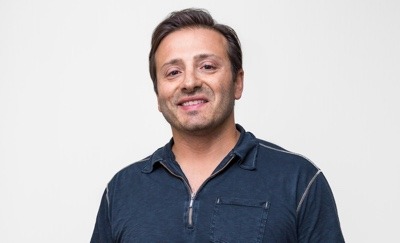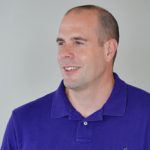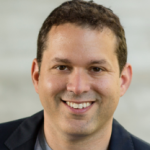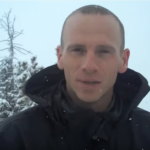
Today we have an interview (podcast and transcript) with another personal hero and mentor of mine – Mr Yanik Silver – Internet Marketing Superstar.
I first met Yanik in 2006 when I attended his Underground Online Seminar 2 in Washington DC. I had never before been to such a FUN, business event and I was literally blown away with the amount of information Yanik and the speakers provided. (This was also the event were I first met Ryan Lee) Even cooler for me, Yanik awarded prizes to members of the audience – such as in my case winning a prize for being the youngest attendee. When Yanik presented me with his Internet Copywriting workshop course (value something like $1497) I really did not know just what a remarkable influence on my life Yanik was about to become. Even though I was just a 17yr old “kid entrepreneur” Yanik went out of his way to inspire me and encourage me as he still does today. Thank you Yanik.
Just a few of the things revealed in this interview are Yanik’s philosophy on business, his passion for helping young entrepreneurs, plus some insights he got from hanging out with Sir Richard Branson in Necker Island and running his newest Business Maverick Business Adventures.
Yanik also introduces us to the principle of creating “Fish” or “Done For You” products – something I am starting to apply myself these days.
Enjoy the interview – I look forward to your comments
Very Best Wishes
Michael
PS: My Takeaway from this interview? Well as always with Yanik there are tons of Takeaways — but one that for me stands out a mile and which is also somewhat obvious is: Your questions dictate your Answers
So often in life and in business we ask ourselves the wrong questions – so next time you are looking for an answer – think “Am I asking the right question?”
Yanik Silver Interview
++ Click Here to Hear This Yanik Silver Podcast and Interview ++
Interview Transcript
Michael Dunlop: Hello everyone, this is Michael Dunlop from Income Diary and today I’m with Yanik Silver, who has being mentioned in dozens of our interviews and top lists and posts throughout the last seven months we’ve had the site up so it’s great to have him here today in person. Welcome Yanik.
Yanik Silver: Thanks Michael, yeah I’m excited to be here.
Michael: Okay Yanik’s being mentioned for a good reason and today we’ll get to share some great advice from him. So I’ll jump straight in with my first question which is – a lot of my readers are starting off with their online business, or blog, or website and so many of them are trying to put together their big idea – so what advice would you give them to bring it together?
Yanik: Well there’s, two parts to it. One is, I really think that, your questions dictate your answers, When I first got started online, I literally was kinda scoping out the scene and this was back in ’99 and I didn’t even have an email address back then and looking at some people that were selling information online and digitally delivering it that I’m like thought that’s an interesting thing. I could probably do that and I’d literally like ask myself the question you know, how can I create a fully automatic website that makes me money while I sleep, is an incredible value for people, and, and is not just an e-book and I’ll explain why, why that was important in a moment, and so literally at 3 o’clock in the morning one night I woke up and tapped my wife on the shoulder- I’m like “Missy, Missy, wake up, wake up, I got this great idea” and she’s like “Oh, please go back to bed” and I’m like “No, no, this is gonna be, this is gonna be really good” and I jumped out of bed and, and took action and so that was one of the key points was, was jumping out of bed and, and taking action, and that’s you know, one of the things that, that I see so many people falling down on – as I think everyone has at least one million dollar idea in, in their head and they don’t, they don’t take that, that positive action to, to get it going. That first idea was a little site called ‘Instant Sales Letters’ and that has gone on now to be my first, that was my very first million dollar product at forty bucks a clip so we sold a bunch of those.
Michael: Yeah, that’s, that’s incredible.
Yanik: Yeah, and, and actually kinda relates to, you know, what, what you mentioned before, Michael, was, you know, how, that the idea stage in, for young entrepreneurs and for those getting started, um, I’m a, I’m a big believer in having that big idea or having a, a big hook which is a unique angle, so like remember in my questions I said it can’t be an e-book, I wanted to differentiate what I was doing from other things out there in the market place at that point, so ‘Instant Sales Letters’ was a series of, of download-able templates that people could use and, you know, the technology behind this is pretty damn crude right now and I probably should update it but I haven’t, I haven’t touched it in probably five or six years, but the, the big idea of that was something that I call it a “fish product” and everyone has heard this saying – “you hand a man a fish you feed him for a day, if you teach a man to fish you feed him for life, well that’s kinda bullshit.
People want the fish handed to them you know, and you walk into a restaurant, you don’t want to go out back and go fishing for your dinner in most cases. You want it prepared really nicely by the chef and so that was what ‘Instant Sales Letters’ did and my wife even had a little bit of success kinda knocking me off with instant thank you letters, but you know, anytime you can give people a fish product I always think about okay, what, what can you do to make it push buttons simple for people – how do you give them something on a silver platter. Look at even like Matt Mullenweg and WordPress for example. I mean that, that really took off. I had the good fortune of meeting Matt Mullenweg, down in the British Virgin Islands actually along with your dad, and you know WordPress, I think what makes it so great, I mean there’s a lot of things, but part of it is that it’s so damn simple and it’s like, it’s like the fish product. It’s, it’s handing it to them on a platter for, for concept management, so there’s a lot of those out there and I’ve had good success with that and then the other really big point of the, the big idea is I always think about how can I go the opposite direction? I look at things like my underground online seminar which is a good example of that which stemmed out of me thinking about what’s in the market place right now? and this was five years ago and I’m like okay there’s a lot of internet seminars and there’s a lot of people doing it the exact same way, with pretty much the same speakers, so I thought, okay to really differentiate let’s go with really unknown speakers who are making a whole lot of money online, making millions of dollars but are doing it very quietly and most people never heard of and that was how the underground seminar was born so those are just two ways of coming up with a big idea.
Michael: That’s great advice, Yanik. I’m sure everyone could take something away from that, even myself, at the last MasterMind you had, my dad brought me along and I took away the idea of “done for you” which is sort of the same sort of principles, like, you know, give it to them done instead of teaching them how to do it.
Yanik: Yeah, some people are, are do it yourselfers and then a, a lot of us are, are kinda lazy and, and that’s not lazy in a bad way, but we’re all so busy. However if you present its as “done for you” and the give it to them on a silver platter it works much better. This stems through kinda everything that I try and do, everything from when we get our affiliates to help promote our products, for example you wanna provide your clients with all the tools that they need to do it, all the pre-done emails if possible, and banners, and so forth so they don’t have to think about it too much.
Michael: Yep, exactly and that’s probably touching on my next question- you, you mentioned that, uh, you were selling ‘Instant Sales Letters’ for just forty dollars, but like loads of my readers, um, you know, sending from twenty to a hundred dollars to sell over a million dollars worth you must of, uh, sold a lot, say what sort of, of tools or resources, or what was the idea that you used to sell so much?
Yanik: The biggest thing is partially what we covered is it had a good hook to it and so it got people excited, they could, as soon as they got the site or even heard the URL they, they kinda got what, what it was and that get the ball rolling. I really based a lot of my business on affiliate marketing, where we get other people to promote our products, drive traffic to our site, and right now we have about some forty some thousand affiliates which sounds impressing but the reality of affiliate marketing is that a tiny percentage actually produce business. It is not even like the 80/20 rule, the Pareto Principle, it’s more like a 97/3 rule or a 98/2 rule, so about two percent are, are driving ninety eight percent of your sales and traffic and, I mean, this is a total aside but I ran an affiliate program for, for one of my friends at one point and we had a hundred fifty affiliates only, and we generated about four million dollars in sales from, from those affiliates in one year, so you don’t need a ton of affiliates to do this right but, but affiliate marketing has always been one of my kinda arsenal weapons of choice because of the low risk involved, because of the fact that I only have to pay my employees once somebody that they referred has made a sale and so the very first thing that I did and it’s so simple and you can still today is, I started thinking about okay, well, where are my existing costumers already and at that point I went to AltaVista search engine which, I don’t even know if it’s still around? Obviously you would go to Google today and maybe a couple of other search engines, but just type in a couple of your keyword phrases and see who else is coming up on top, so who’s in the top ten, so I typed in ‘sales letters’ and I would see, okay, you know, one of the top ones was like a university, they’re not going to promote for me, obviously, or it would be pretty hard to get them to promote for me and then, you know, so I went through the list of top ten, top twenty sites and obviously those top ten, top twenty, had the traffic that I was looking for and so I just contacted them in a very personal way, not in a spam me sort of way, and, and just said ‘hey, you know, I created this site called Instant Sales Letters I think, the visitors coming to your site might be interested in this if you wanna come, go check it out here’s a password for it” and you know, I think I got like one or two of those people to, to respond and say “yeah, okay” and then they promoted it and then what I did was kinda of like a, a Chinese water torture where just, we just kept, uh, following up on the rest of those, those hot prospects with, with the results from, from the guys who promoted it so, I just kept them posted: “hey, you know, so and so just promoted this and they made this” and I think I got about thirty, nah, probably like forty percent of my top twenty people to sign up as affiliates pretty quickly and from there it just kinda, kinda grew where we’d advertised it a little bit, we still do some paperclip advertising, but, uh, to tell you the truth the affiliate program the affiliate network is probably the biggest thing that ever really runs it. Articles that I’ve done have helped, but the affiliate program, that is the big one.
Michael: Alright, great, great advice, Yanik. You have got more than just one product here, you got dozen of products and services and events now and you got hundreds of thousands of people following what you’re doing and contacting you, how do you sort of keep up with all of this and what advise would you give to other entrepreneurs with a lot on their plates right now?
Yanik: Ha, I don’t know, you got to figure out where your breaking point sort of is. I mean I love having multiple things on the go and for some people they like having only one thing on the go. Instant Sales Letters was my very first thing and the funny thing is, uh, that’s probably the most entrenched thing I did because I focused solely on that and built that up and had a good foundation around it and then the other things kinda came as a, as a creative byproduct of, of ‘Instant Sales Letters’ I mean, within four months I was on track to do six figures a year and that’s when people started asking me “hey how did you do this and can you teach me how to do the same thing and that’s how I started creating internet marketing related products based on what I’ve done and so that was all just this weird, you know, side by-product that, well my original goal was to sell ‘Instant Sales Letter’ for half a million dollars to like stamps.com or something like that but, but I wouldn’t, I wouldn’t do that today for, just because it’s a great engine that drives a lot of the other things that we’re doing. I try and focus in on what I’m really good at and I’ve taken a lot of different self assessment tests throughout the years and I think any kind of time that you spend leaning about yourself, learning about your strengths, learning about where you fall down, what you suck at, is all, is all really good time that’s proactive. I mean I’ve literally done everything from like a two day test at the Johnson O’Connor Human Engineering Institute, which is, I think they have locations all around the US, I don’t, they probably have some internationally too, to things like now the Discover Your Strengths, Kolbe Profiling, which is a really good test which is online which is ‘Kolbe.com’ um, created by a woman named Kathy Kolbe which is your connotative ability which is like your natural inclination of how you work and I found that, that really fascinating and, you know, for me, my number which won’t mean anything to you right now, but it’s a 24 or 10-2 but the ten is the area called quick start, which mean how quickly do I initiate a project without knowing what the hell I’m doing and, so a lot of entrepreneurs are behind that quick start and just knowing, you know, knowing a lot of these things about yourself helps you to realize what, what you’re really good at, what, what gives you passion, and for me it’s, it’s definitely the ideas, it’s the start up phase, it’s the, um, it’s coming up with the, the big hook, the big ideas, and a lot of entrepreneurs are like that and, and you gotta, you gotta sometimes partner up with someone who’s, who’s the opposite. I mean, I just hired, a VP of operations – so now I’m in charge of figuring out where we’re going and the vision and the big ideas and then he’s in charge of how are we gonna get there and I’ve found that throughout the years that I’ve done this it’s been really helpful of me bringing my strengths to the table and then having a partner in a lot of cases who has different strengths. A lot of people bring a partner in for the wrong reasons, they bring him in for comradery, or just having somebody to commiserate with. I think it’s a good time to bring people in if they compliment your strengths, so they’re, you know, whatever you’re weak at is where they’re strengths are, hopefully.
Michael: No, that’s a, spot on, I’ve recently got somebody working with myself and I did it for exactly those reasons and it’s helped my business so much it’s, it’s great. Uh, okay, okay so, um, as you mentioned you’ve got so many different things going on like, uh, you have your physical book, e-books, you run seminars, you got your physical newsletter, MasterMind trips, and so on and what is your favorite business model and why?
Yanik: You said favorite business model or business?
Michael: Ah, business model, sorry. Which one of them would you…
Yanik: You know it’s kinda weird, and I would’ve answered this probably differently two years ago and I still love this business model because I think it’s probably one of the best for people that want to break into doing something on their own and, and want to create a nice lifestyle business and that is Information Marketing. I’m such a big believer in having these high margins, low cost produced products, whether it is an e-book, or a membership site, or, or a home-study course, or even a series of seminars or events. I think creating info-products and you can do really well with them and, and its also one of the easiest most lucrative, most fulfilling business models that you can come up with because you get to impact other people. I’ve worked with students from, you know, one guy, one of my favorites is this college kid that came to me and, and he knew how to take engines out of a Honda Accord and put it into a Honda Civic because uh, because they share the same engine or something like that and he, he put it out on a CD-rom and after I worked with him for a little bit he did a hundred thousand dollars a year selling that information to other, other you know mostly kids that wanted to mod their Hondas and, uh, his mom accused him of selling drugs out of his dorm room, he had that much money, yeah so, I, I got a good laugh out of that and I enjoyed that so, you know that’s just one example of selling information and I, I think, you know, we have students who’ve done everything from potty training, to guitar lessons, to financial related things, and I, so I love that model and even if you don’t think you’re an expert at something, I’ve taught repeatedly about taking public domain information and so information that has fallen out of copyright, for whatever reason, and, and just using that. We have, we have stuff that we created, about houseplants that, that sell and about for artists how to, uh, how to draw people better so we’ve done little, little projects like that just to show people how, how easy it is. Um, or I mean, you become almost like a publisher and like what you and I are doing right now, Michael, you’re interviewing me and there’s no reason that, that if you picked out a marketplace, like let’s say I don’t know training parrots how to do tricks, or something like that, you talk to a vet, you talk to, I don’t know, an animal trainer, and you just have a couple interviews and you package them up into a little course that teaches, uh, people how to, how to train their parrots, or whatever marketplace you decide. So I love, I love information and I think, you, um, there’s so many multiple ways they could deliver it now that gets really exciting, whether it’s via.. all the way up to iPhone, to the most simplistic, which is a regular book, which so many people are familiar with and delivering via kindle, delivering via online membership site, there’s just a ton of ways of doing that. Now, so like I said that would have been my answer two years ago, and I still love that, that business model. Um, today, I, you know, I’m evolved as an entrepreneur and part of what I really, what I really lean and get attracted to is passionate, passionate projects so, not only should there be a good solid business model or margin to it, but I, I think it should be something that hopefully gets you excited, that you can have fun with, and, and that yeah, just really revs you up.
Michael: Well hit. Yeah, yeah, I completely agree with that as well. Um, so, that sort of leads me to my next question, actually, you’re well known for the Internet Lifestyle, and I guess that’s sort of what you were just talking about, so what’s your favorite thing about the Internet Lifestyle?
Yanik: For me the Internet Lifestyle means: fun, freedom, financial independence funded by the internet (lot of F’s in there) maybe we could call it the, the F-bomb Internet Lifestyle 😉 My favorite thing is that internet is an amazing golden opportunity right now, a golden age where literally for a couple bucks and a semi-decent idea you can get started and see what happens and the coolest part is we can just grab our laptops. You can run our business from just about anywhere via Skype, via instant message, via gmail and that to me is the coolest part. I mean there’s got to be a balance to, to your entrepreneurship and to, to your whole life, I mean, really that’s where the fun part kicks in and I’m, you know, we could definitely talk about that for a while, but on, on ‘internetlifestyle.com’, which is, which is my blog, I have a whole running list called my ultimate big life list, and some of the things that, that I want to accomplish and, and so that, that keeps me motivated beyond any sort of monetary thing and, and just, uh, the, the freedom. That I think that’s probably the biggest driver for entrepreneurs, if you’re gonna kinda get down to what is the essence of entrepreneurship in, in a lot of cases, it was the freedom that, that drives them and you, you don’t want to get in a situation where, where you lose sight of that and your business really becomes a, a job for you, you wanna, and you have to, and it’s definitely a constant process of being vigilant because, you know, for me, I can keep taking more and more new projects and I’ll never leave my office even though my office is out of my house but still, you gotta have that, that balance and create that fun and the freedom for you and then another element that I kinda just added, like I said I’ve been evolving as an entrepreneur and I have this notion of, not just making more money, not just having more fun, but now it’s about giving, giving more back, so combining all this together I think becomes an optimal business bliss.
Michael: Alright, great. And is this the reason why you launched Maverick Business Adventures or what did inspire you to create that business?
Yanik: Yeah, partially that. It was partially around this, uh, idea, I was kinda, ah, a little burnt out on just the internet marketing thing that I was doing and it wasn’t totally fulfilling to me and I, I made a list of all the things that I would love to have in an ideal business and it was things like: adventure, unique experiences, hanging out with really smart entrepreneurs, brainstorming, um, helping the next generation of young entrepreneurs, and philanthropy, and, and giving back, and having an impact and, and so that was the impetus turn for Maverick Business Adventures. I don’t know where it’s gonna lead to, but I, but I got some, some pretty big ideas for it with, uh, not just this high, high level group of, of entrepreneurs that, that are million dollar plus businesses, but, but hopefully expanding to, to a whole, whole series of groups. I mean, my ultimate goal by 2020 is to have a million, a million young entrepreneurs ages 13-23 start their own businesses and based on mentorship, blueprints, strategies and the secrets that, that a lot of Maverick members would be sharing and creating that, that platform for, for the next generation.
Michael: Which, I mean, everything there just sounded so great to me as well. I mean, I think, for a lot of entrepreneurs it’s hard to, sort of, talk about business to normal people so Maverick Business Adventures sounds like a, a great opportunity for everyone to, sort of, connect on a better level.
Yanik: Yeah definitely, I mean at the highest level it’s everything from hanging out at Sir Richard Branson’s Island and doing all sort of cool activities, and plus raising a lot of money for his charity to like next year we’re going to South Africa. That will be a great trip and we’re going to the finals of the Soccer World Cup, and the semi-finals, and cage diving with sharks, and going on a safari and at the same time while we’re there we’re teaching at the Branson School of Entrepreneurship some kids that we’ve actually already been mentoring with, so it, it combines those three things, those elements that, that I’ve always loved all throughout my life and now I’m just, I just have, uh, kind of, uh, a, I don’t know, a holder for all of them in, in one place.
Michael: Great Yanik. I mentioned at the beginning of the interview you are probably, you are the most mentioned person on this site. You come up all the time. Why do you think you’ve come across so well on the Internet? Is it because you just provide the best value or what do you think is the best way to be seen as the best, I think I just answered that myself, but…
Yanik: Well, I definitely appreciate that, it’s very uplifting and it’s great, maybe it’s just because I have a unique name, I think, uh…
Michael: We know that’s not the case.
Yanik: Well I’ve attempted to be really conscientious about focusing on the things that I expect from myself and I mean, literally if I look up my planner right now on October 6th 1998, (Which was when I felt like I was first getting out of this really big upward trajectory) and one of the big things that, that I wrote there was “I’m rich by enriching others ten times to a hundred times what they pay me in return” and I think that’s, that’s a big element of what, what I really, really, really try and , and focus on, whether it’s a product for forty dollars like the ‘Instant Sales Letters’, I wanna make sure that someone gets at least four hundred to four thousand dollars, and I return to our MasterMind, which is twenty thousand dollars so I wanna make sure that people get a tremendous ROI and I’m, I’m always, uh, attempting to do that, always looking for ways that we can, we can add value, we can provide, you know, some unexpected bonuses. Just, just really having that intention out there, I think helps a lot.
I’m rich by enriching others ten times to a hundred times what they pay me in return
Michael: Well that’s really powerful stuff and I’m not surprised you do so well after hearing that. So we have a lot of, we have lot different aged people on this site, but in particular we have a lot of young entrepreneurs and I thought we’d just quickly mention, you’re doing a pre-day at your underground event in March 2010 – so what would you say to any young entrepreneur out there who is starting an online business right now?
Yanik: I would tell them A) congratulations because I think it’s one of the most exciting things that you could do and, and I’m really excited about the recent statistics that I’ve seen, that say that, that kids coming out of high school, it’s about seventy percent now wanna, wanna start their own business or do their own thing and, and it used to be only maybe about twenty years ago that the statistics were completely opposite where seventy percent wanted to get a job and, and work for, work, work for a big company and have that security and, and I don’t think that there’s any security in that. I think the security in your life comes from having the self assurance and, and the knowledge of knowing that you can literally start from nothing and create something incredibly valuable that, that, that you know, essentially, that the career cash on demand, money, value, pretty much whatever you want. I would tell you another couple other pieces of advice that, that I would, that I’d like to share on that is, you know, a lot of time the, there’s, there’s thinking around, well, you know, if I, I need a lot of money to, to start this business and that’s all bullshit. You don’t, you don’t need a lot of money. On every Maverick Adventures multiday trip that we go on we spend time with a group of, of young kids, uh, in, in every location and I remember this pretty vividly from this last one that we did in San Francisco and we had, I don’t know, maybe like forty kids there or something and I had a panel of the Maverick members up there and I love asking them how much, how much money did you start your business with because it’s, it’s always revealing and a lot of them are like, you know, Tim Huston, from Internet Lifestyle, he said five dollars and, you know, that, that was cool. Um, some of the guys are a couple hundred dollars. One guy, um, who trains fitness trainers, he has a multimillion dollar business now, but his very first business that he started, he started with something like, I think he told me either two hundred or three hundred thousand dollars and that was the one that failed. The one that succeeded was the one that started with a couple hundred dollars and having a so called lack of capital, I think, it forces you to you get creative, it forces you to just not throw your money at, at a problem and cause you’re always gonna have either an excess of time or an excess of money and it’s, it’s, it’s, that’s where the creativity comes from and, and coming up with unique ways to market, uh, what you’re doing and, you know use the natural kinda gift that you got, the, the media is definitely fascinated by young entrepreneurship, but use, use the media to your advantage, that’s all free. Um, I mean, everyone has grown, grown up with, with all sorts of connection points around Facebook and Twitter now and, and, you know, a bunch of other social media sites, use those your advantage to, to build, build your, your marketplace up. So, so start, you know, just start, that, that’s probably the biggest thing and just get into motion and start thinking about what’s the best use of my time and I would also, you know, I, I definitely would stress something that I did really early on was, was learn about direct response marketing and that’s, that’s what I think when you break it all down is, is what the Internet comes down to and, and so I would study like from a hundred years ago to like all the best mail order practitioners because, you know, what, what we’re really trying to do is, in some way shape or form, influence peoples’ actions whether it’s a click whether it’s get them to buy just through the computer screen and, and now we have a lot of different tools that are at our disposals from video to, to live messaging and, and SMS, all sorts of stuff, but back then a hundred years ago, you know, people had to walk down to their mailbox or, or their local mail post and, and place that order. Uh, and, and it would be hard to get them to do that. So if you can learn and study what, what psychology went into that, you can apply that, and not in a, not in a deceptive way, not in a, not in a way that’s used for evil, but in a way, a way that gets people to, uh, gets them to see that you’re product or service is a real benefit to them and, and you gotta have that, this element of, of persuasion there in a good way. One of my favorite books that I’ve read nine times on that is by a guy named Robert Ciladini called Influence: The Psychology of Persuasion.
Michael: Brilliant, top advice, Yanik. Actually, been looking into that myself, so, cool. Uh, if you could go back in a time machine, if it was possible, uh, what would you do differently?
Yanik: That is a good question. You know what, the funny thing is I’ve asked this question of a lot of people too when I interview them and I always cringe when I answer this, because it comes out the same way as so many other people’s answers, that I’ve asked this of and it is that I wouldn’t change too much because I really think we all develop at the right time – you know, what is that saying- “When the student is ready, the teacher will appear”, or something like that?
I think you have to go through certain things to, to kinda, kinda come into your own, so I wouldn’t, I wouldn’t really change too much, I mean, you know, maybe I would’ve got started with having more continuity in my business quicker. So that means some sort of ‘Of The Month’ kind of thing, whether it’s a newsletter or membership site or, you know, something that, so we know every single month in, month out, that there’s X amount of income coming in. Um, I probably would’ve got, got smarter around testing prices sooner, all the things where, you know, you realize that you’re leaving money on the table when you’re looking back at, at, at what you’ve done. You know, selling a bunch of those ‘Instant Sales Letters’, I mean, we had an up-sell originally, very quickly, but you know we never, we never added any sort of continuity to it or anything like that. Um, I don’t know, I mean, I think, definitely everything develops in the right time, so, so I don’t think I would change too much.
Michael: Yeah, cool. I mean, about ninety percent, probably, of people I interview, they sort of look at it the same way, you know, in the, they like the way, the route they’ve taken because, uh, they’ve learned from everything they’ve done wrong and if they didn’t have the opportunity to do things wrong then they probably wouldn’t have learned the lessons.
Yanik: Yeah, absolutely.
Michael: Alright, cool. I’ve got a, a few quickfire questions for you to end the interview – The first is what do you like most about the Internet?
Yanik: I love the way that you can literally come up with an idea at, at 3o’clock in the morning and depending on how fast you are, what kinda skills you got, or what kinda skills you got on your team, that within a day or, or at most a couple weeks, you can have something out there and see what happens. I mean, you get that instant feedback, that’s what, that’s what’s so exciting, you get instant feedback around, around an email that you send or, or a twitter or, or, you know, whatever, and, and that’s exciting to me.
Michael: Wicked. And what do you like least about the Internet?
Yanik: What I like least about it is that it’s too easy to get wrapped up and sidetracked in a hundred different weird, random things that, that makes you think like you’re, you’re doing something productive but you’re really not.
Michael: Twitter.
Yanik: Well, possibly, yeah. If you’re in there for a strategic reason or, uh, you know like, like the other day I connected with the CMO of Kodak on Twitter so that was a strategic thing I wanted to do and go in there and set up this interview and that happened, but if you’re just kinda socializing, unless you got a plan for what you want to achieve it’s too easy to get sucked into your screen 24/7.
Michael: Cool. And, uh, who do you look up to? Um, who’s your role model for your business?
Yanik: As trite as it sounds, Sir Richard Branson is definitely my role model. I’ve been really fortunate and had the opportunity to hang out with him a couple times now and he’s one of the few kinda role model / inventors that I’ve met that once I’ve met them I’ve been even more inspired.
Michael: That’s always good.
Yanik: Yeah, I just love the fact that he’s not afraid to put himself out there. I mean, he runs multiple businesses, there is something like three hundred Virgin companies out there, that, that’s really inspiring to me because as, as an entrepreneur, with ADD (I haven’t been diagnosed with it, but I’m sure I got it) – you know, I love that, that aspect of it. I love the way that he’s created, he’s sort of imprinted his DNA on the companies and that cheeky sort of behavior, if I can steal a British term. He totally lives his life on his terms and that to me is the big inspiring point. You know there’s a lot of very wealthy, rich entrepreneurs that just seem pretty damn boring.
Michael: Yeah, well they say life is an adventure, so go live it.
Yanik: Yeah, make it one.
Michael: Yeah, wicked. And what is the best advice you’ve ever been given?
Yanik: You know what, it’s not something that I’ve been given directly, but there are some audio and print programs by a guy named Earl Nightingale – one is called ‘Lead the Field’ and is the most popular one but, I really like ‘The Strangest Secret’. So I study a lot of his stuff, even like really random obscure stuff and one thing that, that I really took to heart from, from him was: if you wanna become an expert in any subject you have to read or study for one hour a day on that subject material for three years, and if you wanna become a world class expert you read or study for one hour a day for, for five years. In my formative kinda entrepreneurial years where I think I was about eighteen when I first got impacted by learning about stuff like direct response marketing and also because of what I learned from Earl Nightingale I said “Well, you know, what would happen if you study for two hours a day or three hours a day”? – so you know what I just really ramped up for my my success.
Michael: Cool. Alright, so thanks very much for, um, being here today, Yanik. We’re taking some great advice away from you. Is there anything, uh, any last things you’d like to tell us, any personal business plans you have, or would you like to quickly mention the underground?
Yanik: Sure, I’ll mention the underground – after all you’re gonna be facilitating the Young Mogul day, that we’re having this year as the pre-day to Underground. It takes place March 12th-14th, 2010 in DC, with the Young Mogul day on the 11th, and that’s going to be really exciting and we’ll be releasing that soon. I’m sure that they’ll hear about it from you and, um, yeah, I don’t know, I mean I have, uh, we got, we got a lot of great big plans in place for this new vision of, uh, like I, I mentioned the, the one million young entrepreneurs getting started and it’s going to be part of an association that we’re going to be calling the, uh, the ‘Maverick One Million Association’, so that’ll be at ‘maverickonemillion.org’ so look for, look for something there pretty soon.
Michael: Alright, thanks very much, Yanik.
Yanik: Thanks, Michael. Appreciate it.
Just some of Yanik’s Websites:
Underground Online Seminar












Pingback:URL